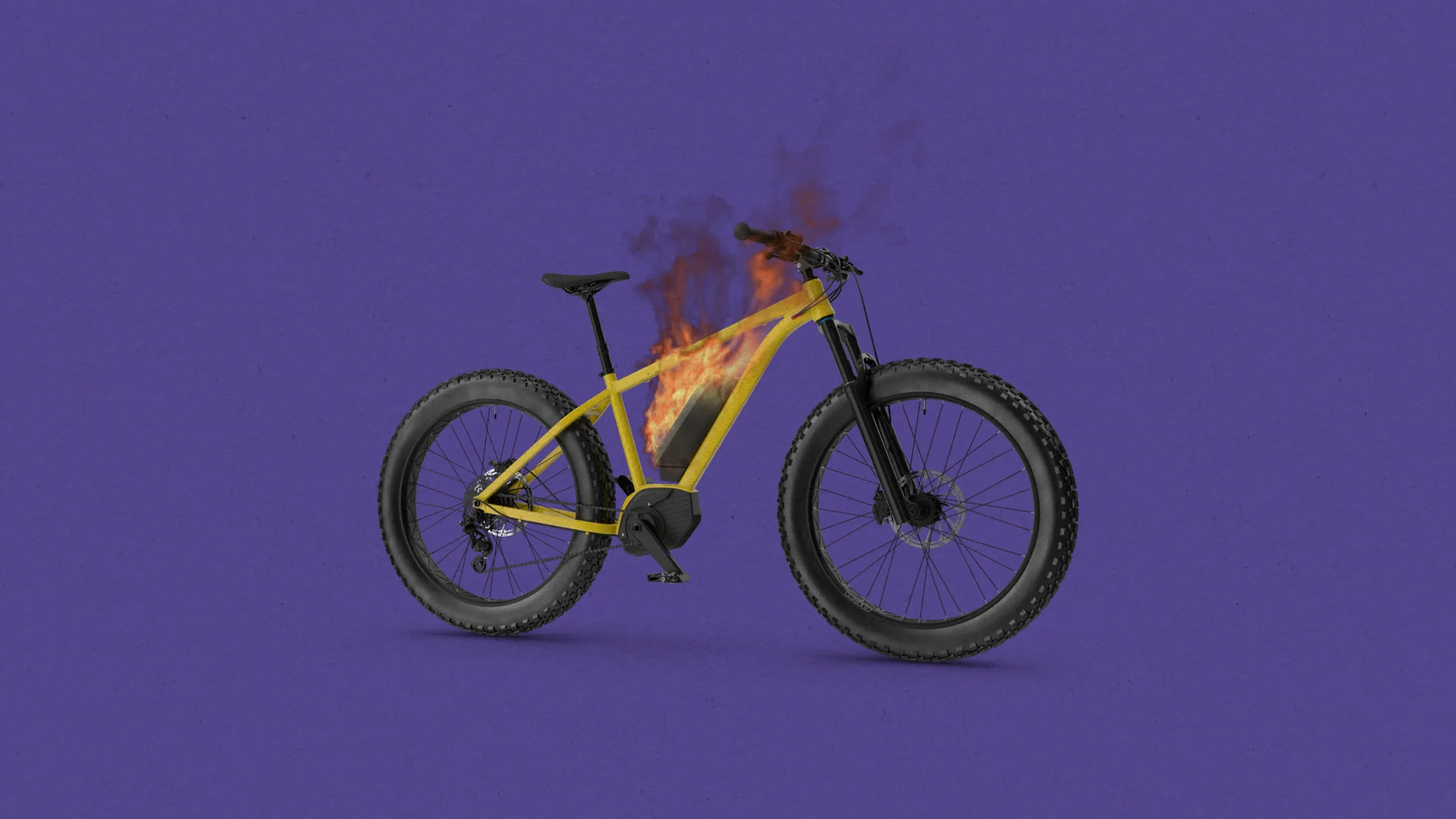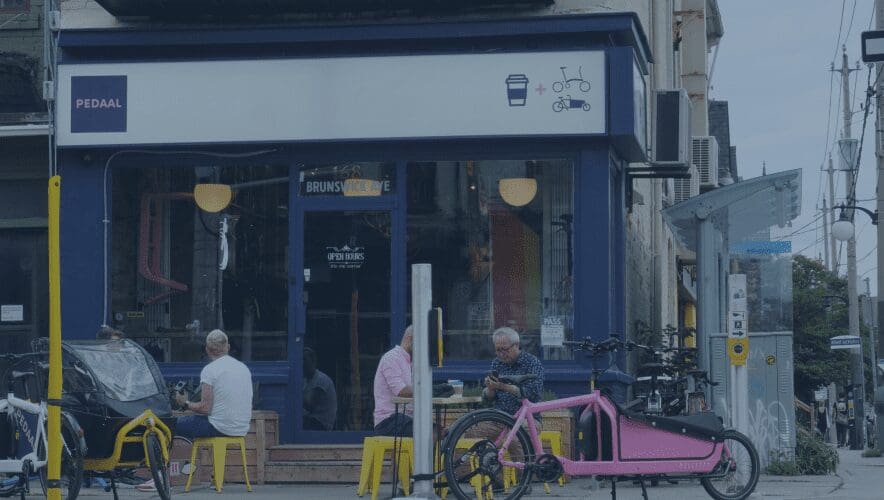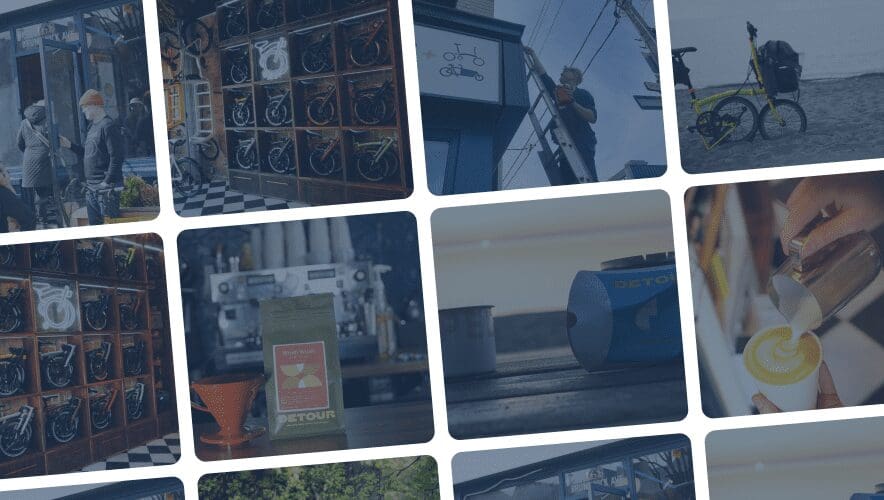May the 4th is known as Star Wars Day because, y’know “May the Fourth be with you.” People have been known to dress up their cargo bikes as galactic cruisers. But, on May 4th we were out in force, talking about electric bikes, which we’d like to think is a force to be reckoned with. It was a two part day. First was a Jane’s Walk which we led alongside Albert Koehl. The discussion here was e-bikes. Then it was the e-bike festival, held on the west-end with our good friends at Zygg. It was a busy day, but we went forth!
Who Was Jane Jacobs?
Jane Jacobs, who the “Jane’s Walk” is named after was certainly a force of nature. Jane Jacobs was an urban theorist and activist best known for championing vibrant, community-based city planning over top-down, car-centric development. She believed that cities thrive when they are dense, diverse, and walkable, with active street life and mixed-use neighbourhoods. Jacobs protested large-scale urban renewal projects that displaced communities and destroyed the social fabric of neighbourhoods, famously opposing Robert Moses in New York.
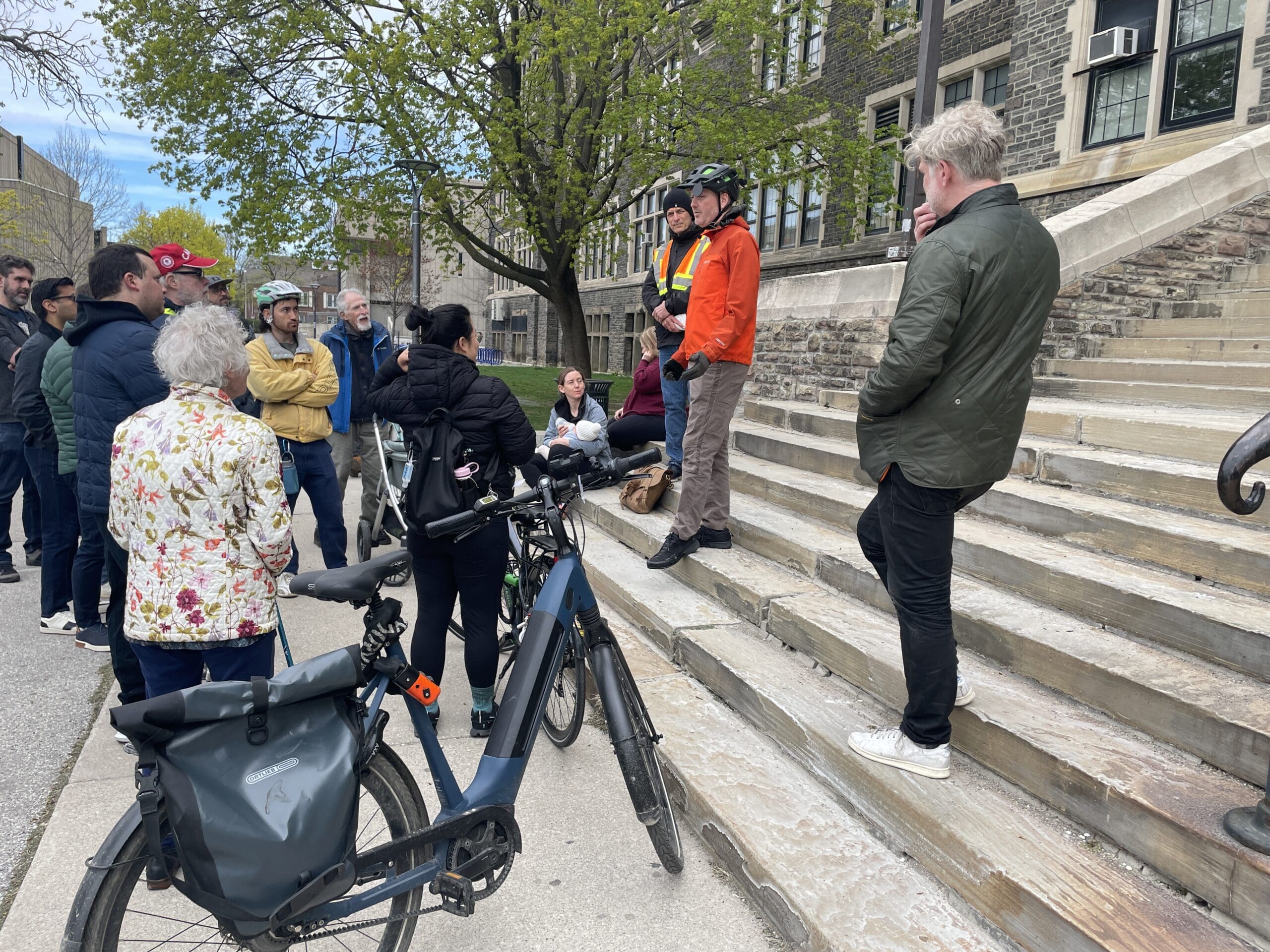
After moving to Toronto in 1968, Jane Jacob’s played a key role in stopping expressways like the Spadina Expressway and became a central figure in preserving the character and livability of downtown Toronto, leaving a lasting impact on the city’s planning philosophy. At Pedaal we hope that by promoting city cycling we continue the legacy of Jane Jacob’s, and we’re thankful there isn’t an eight lane highway two blocks down the street. Most of all we were pleased as punch to join Albert Koehl, director of Community Bikeways and author of Wheeling Through Toronto as experts in helping deconfuse the state of e-bikes in Ontario.
Deconfusing E-Bike Legislation
Ontario’s e-bike legislation is confusing. It really is. Janes Walk’s aren’t a lecture, they are a conversation, and our attendees were all supporters of e-bikes but had serious concerns. Much of this came down to the lack of legislation that has allowed monolithic companies like Uber to operate an unhinged marketplace that exploits new immigrant Canadians while monetizing reckless behaviour on dangerously unregulated bikes. We’ve written extensively on the type of bikes that food delivery riders use, calling for regulations on bikes with throttles.
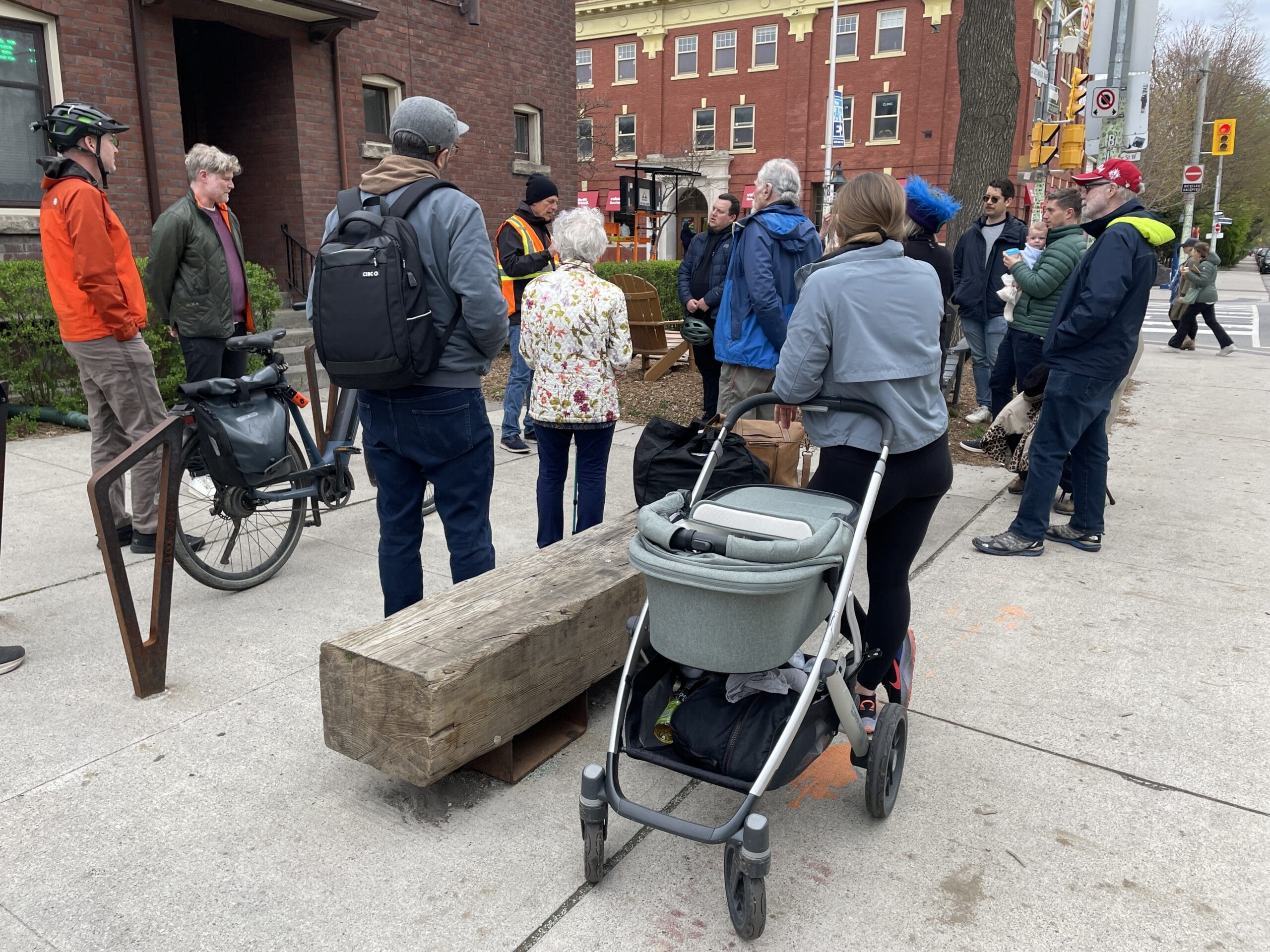
But, the issue goes deeper than that. It comes down to the larger issue of bike lanes, which is close to the heart of Albert Koehl and Pedaal’s Eric Kamphof. Both Albert and Eric were original founders of Bells on Bloor, the initiative that helped bring bike lanes to Bloor Street. Bike lanes are there to promise safety. But, if cyclists don’t feel safe in bike lanes because of companies like Uber have taken over public space, then companies like Uber need to be regulated. Where to start? It’s a good question. One place might be regulating the bikes themselves.
Regulating Bad Actors
We live, it seems, in a time of disruption that views regulation as heavy handed. Maybe there is a truth to this. But, issues of regulation and disruption will always come down to good faith or bad actors. Uber isn’t the only bad actor. Enabling Uber are hundreds of fly-by-night e-bike companies who sell throttle assisted bicycles with dangerous batteries that can quickly catch fire. These bikes only sell in the absence of regulations.
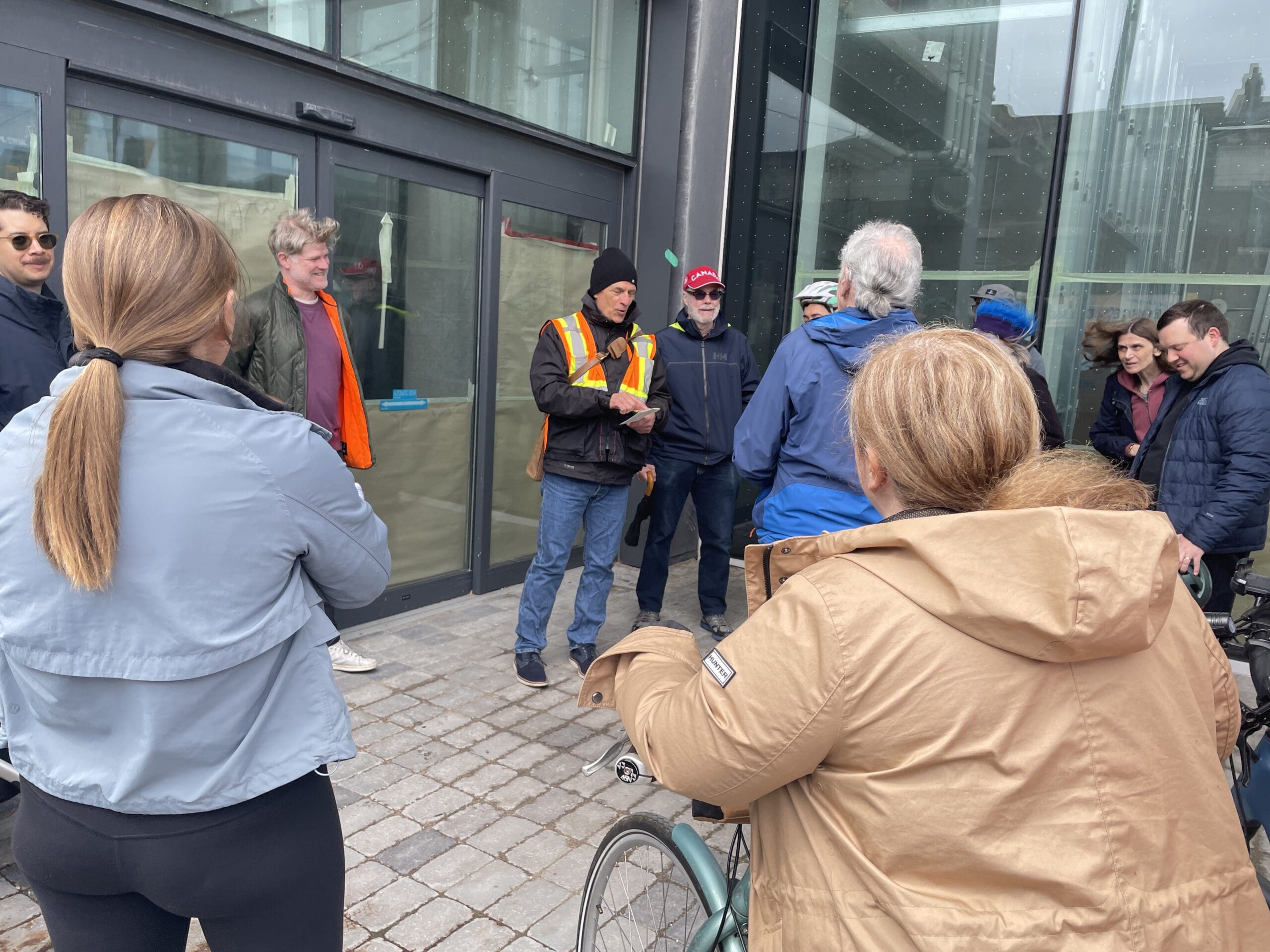
In places like Holland, where bikes like these have caused countless injuries, regulations now exist that categorize anything throttle-assisted as a motor vehicle and anything pedal-assisted as a bicycle. This, perhaps, requires explanation. A pedal-assisted bike means that the rider must be pedalling in order for the motor to assist. The assist does not replace pedalling.
Defining Power Assist
This is important. On a throttle-assisted bike, the motor replaces pedalling – which is why it’s rare to see anyone pedalling on one of these bikes. The difference, as far as safety is concerned, is that a pedal-assisted bike only delivers it’s highest peak power when the conditions call for it. On a throttle-assisted bike, the highest peak power – which is close to an actual motorbike – is available with the press of a button or the twist of a wrist.
The problem, as our Jane’s Walk explored, is that most provinces state that there must be pedals on the bike and that they must be “working.” “Working” is a tricky term. Is it that the pedals can work – if asked to demonstrate? Or, is it that they should always be in the act of working, that is, that one is always pedalling?
This has become something of a joke, with e-mopeds on the market with pedals that push the definition of operability – especially given the position of the pedals and the weight of the bike. In short, there are companies out to make a fast buck in the limbo period of bad legislation. But, the problem is that the greatest number of people using these bikes are employed – or rather “contracted” – by Uber, who have made our public space a risky environment with no risk to their bottom line.
Building Access
Next up was the E-Bike Festival, hosted by our friends at Zygg. Zygg is a great company. Started by Kevin McLaughlin, founder of Autoshare, Zygg takes the sharing economy to electric bikes. Kevin is great believer that electric bikes are the ultimate competition against more expensive and gridlocked cars – and he’s right. Zygg began as a way for consumers to try an e-bike at a very low risk and very low cost. It’s subscription models lend out quality Gazelle ebikes and even some cargo bikes (although we’d love to see some Bromptons and Bullitts!).
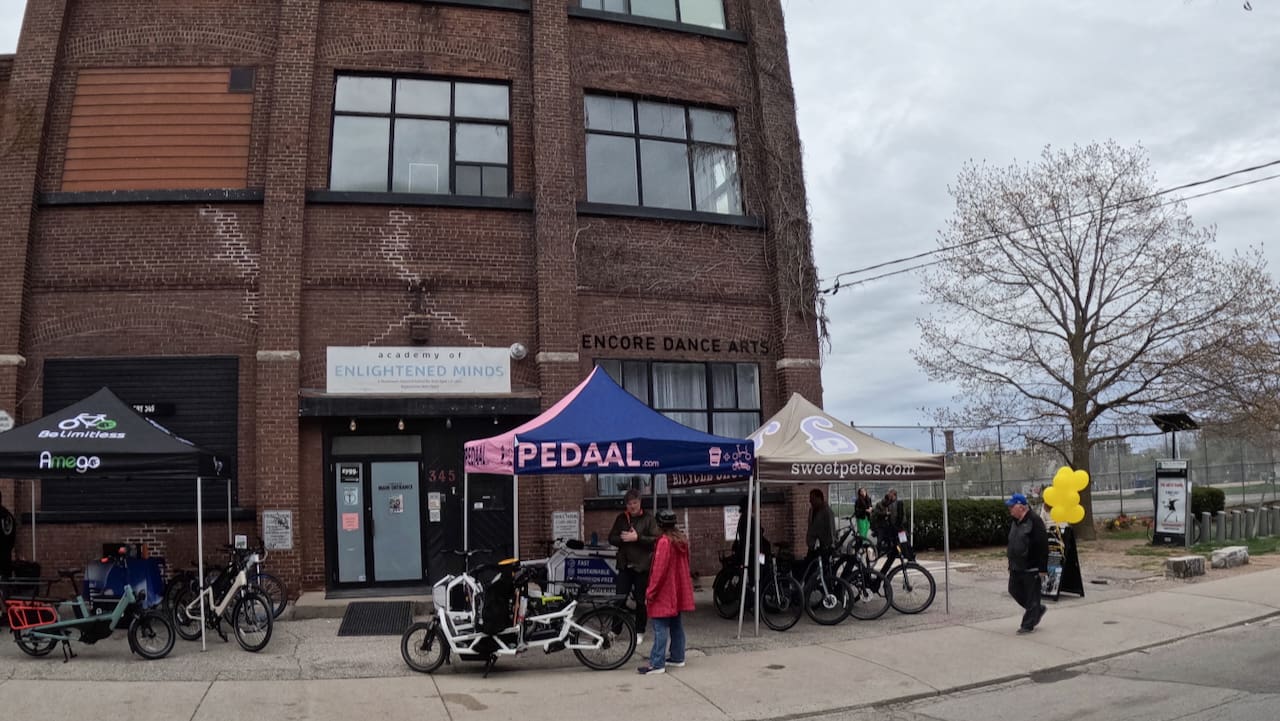
We’ve always dreamed of opening a west end location, and this was our second year at the e-bike festival where we observed a high level of literacy with ebikes and the brands we sell. Many test rides later – and many interested customers later – we packed up our folding bikes into our cargo bikes and headed back to the shop.
Pedal-Assist. What is the Force?
All in all, it was a day well spent: talking policy, turning pedals, and swapping stories about what kind of city we want to live in. At Pedaal, we believe it’s one with fewer exhaust fumes and the kind of quiet power that comes your legs – even if sometimes those legs could use a bit of an assist.
But hey, wasn’t the “force” always a form of power-assist? After all, it was only the bad guys who were going full throttle. Perhaps throttle bikes speak to some sort of compulsion while power-assists speak to something more with and willful? We’ll let you Star Wars junkies (and psychoanalysts!) figure that one out.
Stay in the Know. Join our Newsletter!


